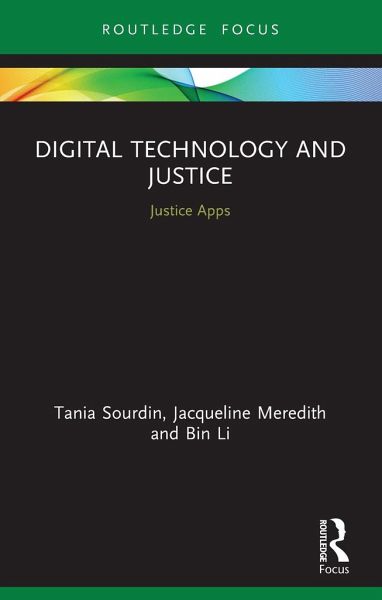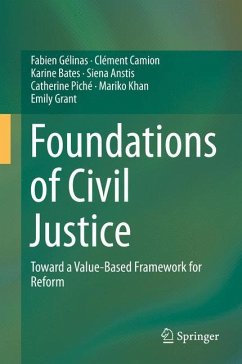
Digital Technology and Justice
Justice Apps
Versandkostenfrei!
Versandfertig in 6-10 Tagen
22,99 €
inkl. MwSt.
Weitere Ausgaben:

PAYBACK Punkte
11 °P sammeln!
Justice apps - mobile and web-based programmes that can assist individuals with legal tasks - are being produced, improved, and accessed at an unprecedented rate. These technologies have the potential to reshape the justice system, improve access to justice, and demystify legal institutions. Using artificial intelligence techniques, apps can even facilitate the resolution of common legal disputes.However, these opportunities must be assessed in light of the many challenges associated with app use in the justice sector. These include the digital divide and other accessibility issues; the ethica...
Justice apps - mobile and web-based programmes that can assist individuals with legal tasks - are being produced, improved, and accessed at an unprecedented rate. These technologies have the potential to reshape the justice system, improve access to justice, and demystify legal institutions. Using artificial intelligence techniques, apps can even facilitate the resolution of common legal disputes.
However, these opportunities must be assessed in light of the many challenges associated with app use in the justice sector. These include the digital divide and other accessibility issues; the ethical challenges raised by the dehumanisation of legal processes; and various privacy, security, and confidentiality risks.
Surveying the landscape of this emergent industry, this book explores the objectives, opportunities, and challenges presented by apps across all areas of the justice sector. Detailed consideration is also given to the use of justice apps in specific legal contexts, including the family law and criminal law sectors. The first book to engage with justice apps, this book will appeal to a wide range of legal scholars, students, practitioners, and policy-makers.
However, these opportunities must be assessed in light of the many challenges associated with app use in the justice sector. These include the digital divide and other accessibility issues; the ethical challenges raised by the dehumanisation of legal processes; and various privacy, security, and confidentiality risks.
Surveying the landscape of this emergent industry, this book explores the objectives, opportunities, and challenges presented by apps across all areas of the justice sector. Detailed consideration is also given to the use of justice apps in specific legal contexts, including the family law and criminal law sectors. The first book to engage with justice apps, this book will appeal to a wide range of legal scholars, students, practitioners, and policy-makers.














